
In particular, the first group of tasks that the Ministry of Agriculture and Environment has completed is to develop technical guidance documents on collecting, updating, editing and supplementing land database information, unique identification codes of land plots and implementing 2-level local government.
Up to now, the Ministry of Agriculture and Environment has completed the development of documents guiding localities to review and classify data into groups: Groups with databases built and usable data, ensuring "correct - sufficient - clean - alive"; Groups with databases built but data need to be correct, complete, supplemented and authenticated with information of land users and owners of assets attached to land; Groups with databases built but data cannot be used, need to be newly built; synthesizing the results of classifying land data nationwide.
Documents and forms attached to local guidelines for collecting citizen identification cards (CCCD) and certificates of land and housing, but the land database of land users and housing owners has not been built yet, which has now been completed.
The Department of Digital Transformation (Ministry of Agriculture and Environment) in coordination with the Department of Administrative Police for Social Order ( Ministry of Public Security ) has developed documents, technical instructions and solutions to synchronize the land database currently operating at the local level into the national land database and connect, integrate and synchronize with the national population database, the National Data Center and ministries and branches.
According to the Ministry of Agriculture and Environment, there is currently a group of tasks that are continuing to be implemented, which is to organize real-time synchronization of the land database operating at the local level into the national land database and connect, integrate, and synchronize with the national population database, the National Data Center, and throughout the entire political system, across the Government, ministries, branches, localities, and Party agencies, the National Assembly, the Vietnam Fatherland Front, the People's Court, the People's Procuracy, and socio-political organizations to serve the immediate exploitation of land information and data in the settlement of administrative procedures for people, organizations, and businesses. After that, regular synchronization will be carried out in real time.
This task force is being implemented by the Department of Digital Transformation, the Department of Administrative Police for Social Order, and the Department of Agriculture and Environment of localities. When completed, 100% of local land plot data will be synchronized to the Central Government and the number of synchronized land plots will be monitored in real time. In addition, the Department of Digital Transformation has established working groups to go to localities to urge, guide and accompany the campaign implementation process, and organize online teams to promptly answer and support localities during the implementation process.
Implementing a 90-day campaign to enrich and clean up land data, people cooperate to provide and verify information, and accompany the State in building a land database to serve management and administrative reform.
Mr. Mai Van Phan - Deputy Director of the Department of Land Management - Head of the Working Group implementing Plan 515/KH-BCA-BNN&MT on the plan to implement the campaign to enrich and clean up the national land database, said that the Campaign aims to complete the land database "correct - sufficient - clean - living - unified - shared", helping people benefit directly from administrative reform and digital transformation in the land sector.
This campaign is a concrete step to implement Resolution No. 57-NQ/TW dated December 22, 2024 of the Politburo on breakthroughs in science, technology, innovation and national digital transformation. This is also a task specified in Plan No. 02-KH/BCĐTW dated June 19, 2025 of the Central Steering Committee, with the requirement of taking data as the center, ensuring "correct - sufficient - clean - alive - unified - shared". In particular, building a national database on land is an important foundation for authorities at all levels to serve people faster and more transparently.
At the same time, Resolution No. 214/NQ-CP dated July 23, 2025 of the Government sets the target that by 2026, 100% of national databases, including land databases, must be reviewed, standardized, ensuring the ability to connect, share, and integrate to serve the direction and administration work, reform administrative procedures and provide online public services.
In the context of reorganizing the two-level local government model, complete and accurate land data will help local authorities have the tools to handle administrative procedures right at communes, wards and towns. People no longer have to travel much, documents are processed in the electronic environment, saving time and costs - Mr. Mai Van Phan emphasized.
Therefore, the Campaign sets three key objectives: creating a modern data platform to serve e-Government and transparent and accountable land management; improving the quality of public service provision, helping people and businesses carry out land procedures more conveniently; connecting and synchronizing land databases with other national databases, helping management agencies exploit data effectively, serving people better.
According to Mr. Mai Van Phan, to achieve the above goals, there are 5 requirements set out. Firstly, the national land database that has been built must be reviewed and completed to be “correct - sufficient - clean - viable - unified - shared”; ensuring unity, synchronization, and conformity with the 2-level local government organization model.
In addition, the national land database must be synchronized, centralized, unified at the Central level, connected and shared with the national population database, the National Data Center and throughout the entire political system (throughout the Government, and Party agencies, the National Assembly, the Vietnam Fatherland Front, the People's Court, and the People's Procuracy).
At the same time, review and restructure administrative processes and procedures, focusing on internal processes and procedures to reduce paper documents, reuse information and data already in the national database on land, the national database on population and other databases to resolve administrative procedures on land and assets attached to land of people and businesses.
Next, it is necessary to absolutely ensure information security and network security during the process of organizing, implementing, completing, operating, connecting and sharing the national land database.
In addition, the implementation must be focused, prioritized, drastic, scientific, quality, and effective with the participation of the entire political system, all levels and sectors from the central to communal levels according to the principle of clear people, clear work, clear time, clear results, clear responsibilities, and clear authority.
The goal and requirement of this campaign is to complete the national database on land to ensure "correct - sufficient - clean - living - unified - shared use" to serve transparent, effective and accountable state management; at the same time, it is a tool for agencies to handle administrative procedures on land for people and businesses according to the one-stop, one-stop mechanism at the One-stop Department and the National Public Service Portal.
Therefore, collecting input information to do the right, complete, and clean land data requires the participation of the entire political system and social classes; in which, the participation of land users and property owners attached to land to provide and verify information is very necessary and effective in the process of implementing this campaign.
Currently, the Ministry of Public Security is coordinating with the Ministry of Agriculture and Environment to build a utility on the VneID application so that people can self-provide information and check and verify information on land and housing owners through the National Population Database through the utility on the VneID application without having to provide a copy of the Certificate and Citizen Identification Card.
According to the Ministry of Agriculture and Environment, right from the preparation and issuance of Plan 515/KH-BCA-BNN&MT, the Ministry of Public Security and the Ministry of Agriculture and Environment compiled complete guidance documents and professional procedures for localities to apply and implement; at the same time, ensuring safety, security and confidentiality of information when implementing collection.
Therefore, the participation and companionship of the people in providing, reviewing, supplementing, and verifying information with the management agency to "enrich and clean" data is very valuable. This is an important step for the State and the people to complete the national database on land, serving the implementation and settlement of administrative procedures on land and other online public services in the electronic environment.
Mr. Mai Van Phan emphasized that the ultimate goal of the Campaign is to have “correct - sufficient - clean - alive - unified - shared” data to serve people and businesses. Each citizen participating in providing and verifying information is contributing to building a modern, transparent and effective land administration.
In response to people's concerns and worries about being asked to photocopy or notarize the Land Use Rights Certificate, Mr. Mai Van Phan affirmed that people only need to provide a copy of the Certificate and Citizen Identification Card when requested by the Working Group without having to notarize it. After collecting information and creating data, land users can check and verify information about land and housing owners through the National Population Database through the utility on the VNeID application.
Source: https://baotintuc.vn/kinh-te/hoan-thanh-45-nhiem-vu-lam-sach-du-lieu-dat-dai-20251022153249065.htm




![[Photo] President Luong Cuong holds talks with South African President Matamela Cyril Ramaphosa](https://vphoto.vietnam.vn/thumb/1200x675/vietnam/resource/IMAGE/2025/10/23/1761221878741_ndo_br_1-8416-jpg.webp)

![[Photo] Prime Minister Pham Minh Chinh chairs meeting on railway projects](https://vphoto.vietnam.vn/thumb/1200x675/vietnam/resource/IMAGE/2025/10/23/1761206277171_dsc-9703-jpg.webp)
![[Photo] Prime Minister Pham Minh Chinh meets with South African President Matamela Cyril Ramaphosa](https://vphoto.vietnam.vn/thumb/1200x675/vietnam/resource/IMAGE/2025/10/23/1761226081024_dsc-9845-jpg.webp)
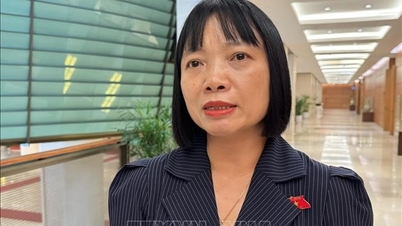




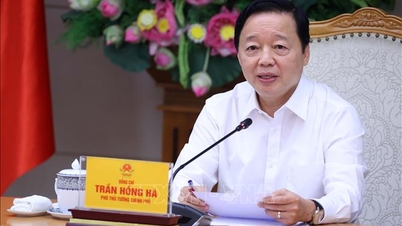
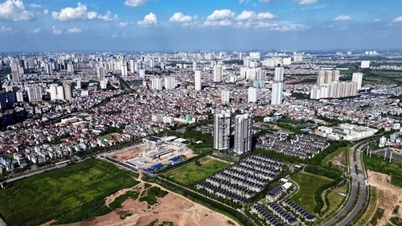



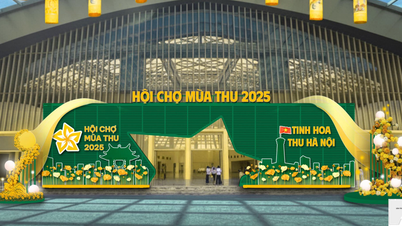
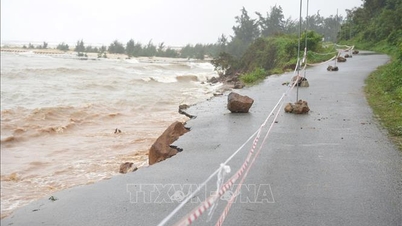
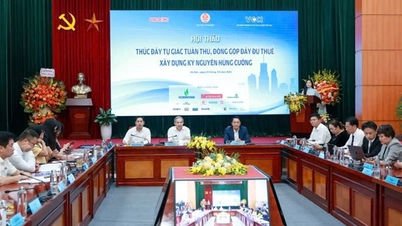
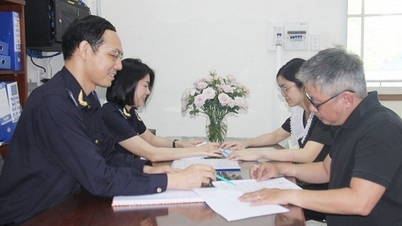

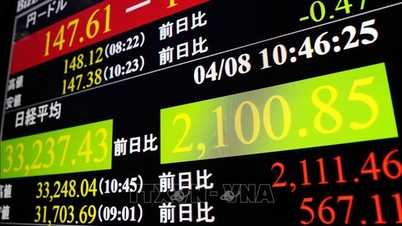
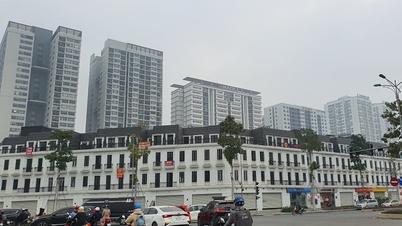




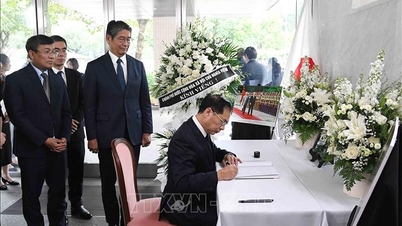


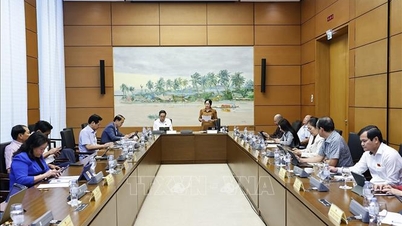
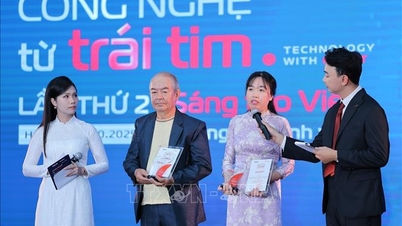
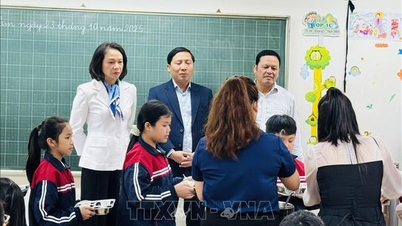







































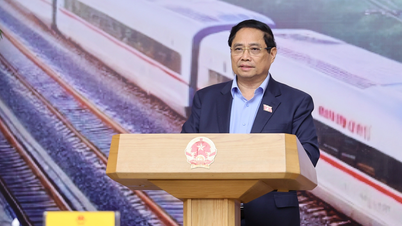










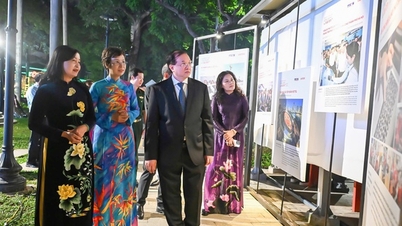





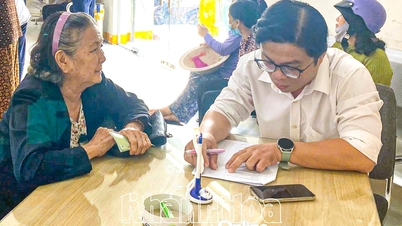

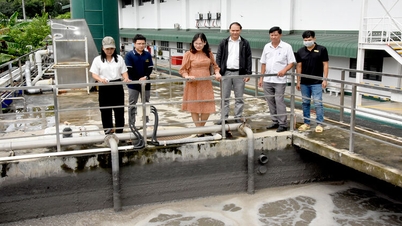

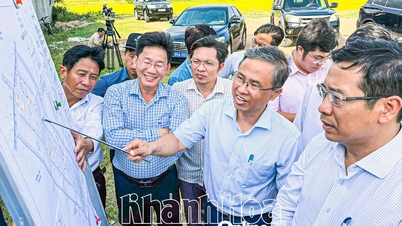












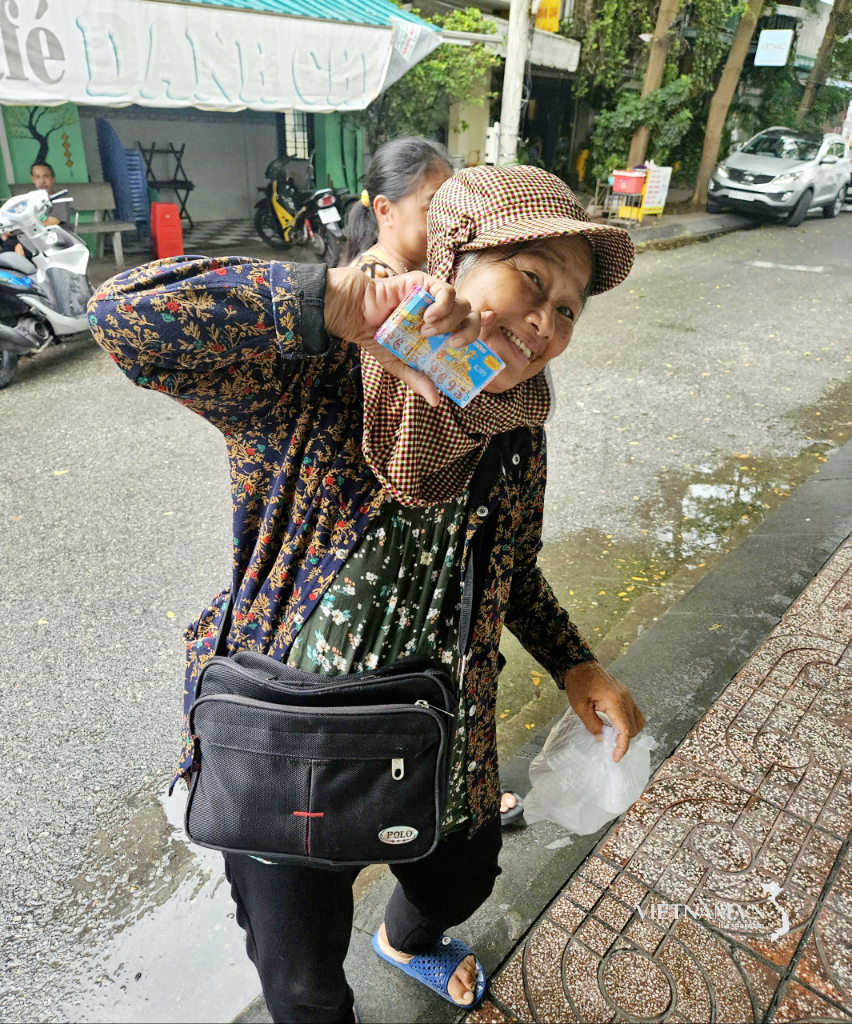


Comment (0)